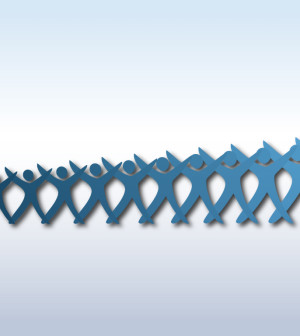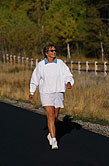- Could Your Grocery Store Meat Be Causing Recurring UTIs?
- Are You Making This Expensive Thermostat Error This Winter?
- Recognizing the Signs of Hypothyroidism
- 10 Strategies to Overcome Insomnia
- Could Artificial Sweeteners Be Aging the Brain Faster?
- Techniques for Soothing Your Nervous System
- Does the Water in Your House Smell Funny? Here’s Why
- Can a Daily Dose of Apple Cider Vinegar Actually Aid Weight Loss?
- 6 Health Beverages That Can Actually Spike Your Blood Sugar
- Treatment Options for Social Anxiety Disorder
Stress-Busting Tips From Experts


SATURDAY, Oct. 19Nobody is immune from the negative health effects of stress. The good news is that staying active is a natural and effective way to reduce stress and avoid related issues like weight fluctuations, nausea and feeling tired, experts say.
“Stress can have many negative effects on the body, such as fatigue, headaches, upset stomach, insomnia, weight loss or gain, muscle tension, and elevated heart rate and blood pressure. You need to find an activity that helps reduce your stress,” Jane Roy, an associate professor of human studies at the University of Alabama at Birmingham School of Education, said in a university news release.
“A single bout of aerobic exercise appears to affect a particular neurotransmitter that has an antidepressant-like effect in the brain, and the increase in blood flow to the working muscles causes a decrease in muscle tension,” she explained.
Roy, who plays tennis for relaxation, added that it’s also a great distraction because she is focused on the game and not the stressors in her daily life.
“When playing, I have to focus on things like the ball, strategy, score and skill, and not on whatever is causing me to feel stressed,” she said. “I also play with friends, so we chat and laugh a lot on changeovers.”
Not a tennis buff? Roy and two colleagues — Larrell Wilkinson, an assistant professor, and Retta Evans, an associate professor — provided some alternative suggestions for easing day-to-day stress:
- Get out. Going outside for a change of scenery, and taking just a 10- to 15-minute walk can help. “Research suggests that a natural environment is a de-stresser,” Roy noted. “Anything outdoors, weather permitting, is a great idea because it gets you out of your regular environment. In the event of bad weather, try yoga or basic stretching exercises.”
- Take a deep breath. Stress or nerves may cause people to take shallow breaths or even hold their breath. Simple breathing exercises, like taking slow, deep breaths can help people relax and de-stress.
- Find a hobby. Having fun and doing something you enjoy is a great way to feel better and relax. “Plan fun activities and enjoy hobbies or engage in interests outside of the job environment,” Wilkinson advised in the news release.
- Eat a healthy diet. Eating more healthy foods, particularly fruits and vegetables, may boost your immune system. “A poor diet puts the body in a state of physical stress and weakens the immune system,” Wilkinson explained. “As a result, a person can be more likely to get infections.”
- Be positive. Making it a point to look on the bright side can make a big difference when it comes to stress. “A person with a negative attitude will often report more stress than would someone with a positive attitude,” Wilkinson said.
- Stay connected. When coping with life’s twists and turns, it’s important to rely on friends for support. “Sometimes having little or no social support will increase the difficulty of dealing with an issue,” Wilkinson noted.
- Stretch. “Stress builds up over time and can center in the neck, back and spine,” Evans said in the release. “Stress can cause headaches and lower the immune response. Both exercise and stretching help to relieve stress.”
- Take a break. For 10 minutes every day, relax and try to shut out the world. “Close your eyes and breathe deeply; this can trigger the relaxation response,” Evans suggested.
More information
The American Psychological Association explains how stress affects your health.
Source: HealthDay
Copyright © 2026 HealthDay. All rights reserved.










